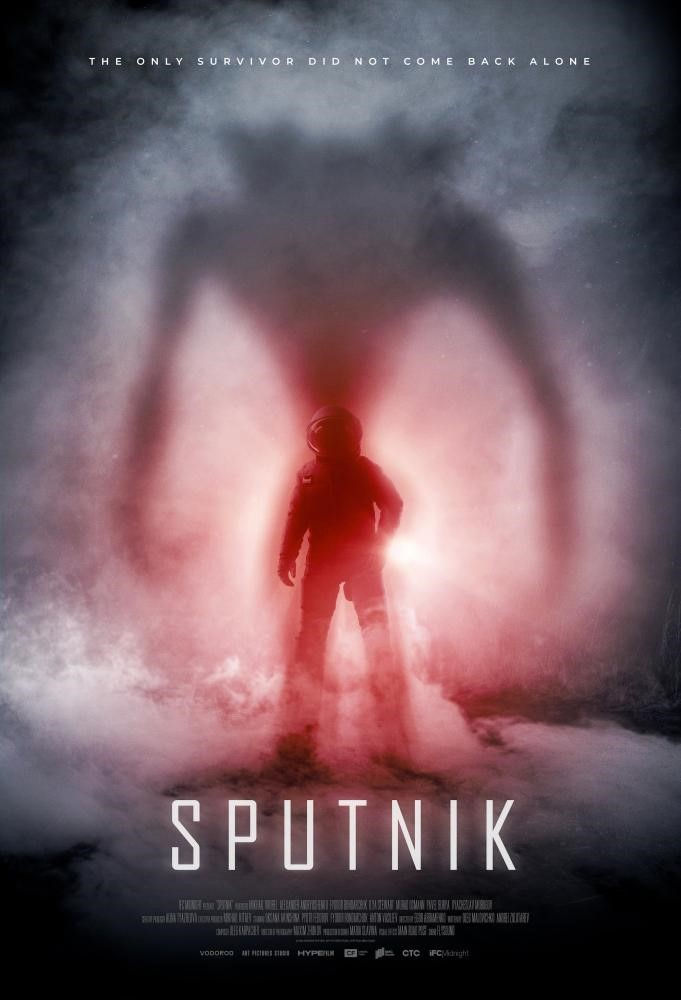Review: 'Sputnik'
- Drew Moniot

- Aug 14, 2020
- 4 min read

Sputnik is a truly exceptional Russian science fiction film. My only complaint is its title.
I immediately assumed the subject matter would revolve around the launch of the world’s first artificial satellite, named Sputnik, by the Soviet Union on October 4, 1957.
It was event that fired the starting gun for the space race and the intense, fearful cold war rivalry between the United States and the Russians.
Having lived through all that when I was a child, I most likely would have watched that Sputnik movie.
There was certainly enough great material there to make it interesting.
But then I watched the trailer and realized that Sputnik, the movie, this movie, was about something else entirely.
And it apparently had nothing whatsoever to do with the small beach ball sized satellite that sent shock waves around the world 62 years ago.
Sputnik is set in the year 1983 at the height of the Cold War.
And it begins in space as two orbiting cosmonauts are preparing their reentry when something unexpected and terrifying suddenly happens.
When the wrecked capsule is discovered, only one of the men, a young Russian space hero is alive.

When we glimpse his partner’s lifeless body, we see that the back of his space helmet and the back of his head have been horribly ripped apart.
We innocently assume that it’s a result of the crash. But we soon discover that things aren’t what they appear in this deep, dark maze of suspense and terror.

For one thing, as shown in the trailer, there seems to be something living inside the surviving cosmonaut.
And while your initial reaction is this is possibly just a another ripoff of Ridley Scott’s Alien (1979), you soon discover otherwise.
Yes, an alien life form is dwelling inside a man’s body, but unlike the storyline of Alien, it’s not just a matter of trying to track it down and destroy it before it manages to destroy everyone else.

Things here are deliciously more complex. And that’s what makes Sputnik worth seeing.
In addition to the unsuspecting host cosmonaut, there is a brilliant, very forthright researcher recruited to analyze and evaluate him in the high-security confines of a remote, top-secret location.

She’s the only woman there, trapped in a cold, creepy environment with it’s own disturbing secrets.
The official in charge of the operation is your standard, elder military officer whose interest in the project, as we’ve seen in dozens of other similar sci-fi scenarios, is to see if there are any opportunities to weaponize whatever they can learn from the strange creature they’ve discovered.
If the plan fails, his orders are to try to contain it and destroy it.
While some of this may seem familiar within the genre of science fiction, the brilliance of the movie is style over content.
It works. On every level.
The writing manages to go beyond familiarity and expectations, ramping up the drama to new levels.
There is complexity and depth here. It delves into psychology, bureaucracy and the stuff that nightmares are made of.

It exceeds your expectations and works at a steady, relentless pace.
Like the great science fiction classics, it’s less effects-driven (though there are some very slick, very convincing digital effects) and more character driven, delving into what makes these characters tick. The Thing from Another World (1951) is a great example.
There is an unsettling ambiance about this isolated research center. The set design and lighting create a place where you really don’t want to be.
The direction and camerawork create ever-increasing suspense, unleashing plot revelations at every turn.
The images, sound effects and eerie music combine perfectly in a genuinely scary film that pays passing homage to other great sci-fi / horror movies while raising the bar with its own brand of bizarre, thrills and chills.
Russian Cinema has given the world some truly great movies.
In the world of science fiction, Anmdrei Tarkovsky’s Solaris (1972 is a great example, often compared to Stanley Kubrick’s masterpiece 2001: A Space Odyssey.
I’m speaking of the original version, not the Steven Soderbergh remake with the same title starting George Clooney released in 2002. For the record, it’s a rare remake also worth seeing on its own terms.
But yes, Sputnik is a Russian film. Yes, it’s subtitled.
But the subtitles never get in the way of the narrative. Five minutes into the film, you’re in for the ride, subtitles and all.
As mentioned, Sputnik is an exceptionally good movie.
It’s the work of people who really know how to make movies.
I’m speaking of director Egor Abremenko, writers Oleg Malovichko and Andrei Zolotarev and the three stars Oksana Akinshina, Fedor Bondarchuk and Pyotr Fyodorov.
The end credits are a testament to the fact that this is a Russian film, top to bottom, with apparently no assistance from the movie community of the western world.
I was impressed. I was entertained.
I just wish they hadn’t titled it Sputnik.
Sputnik is now available in select theaters, and on digital and cable VOD.
Photos courtesy of IFC Midnight. An IFC Midnight Release.

ABOUT THE DIRECTOR: Egor Abramenko is an established award-winning director of commercials and music videos from Russia. In 2017, Egor’s sci-fi thriller short film The Passenger, which later inspired his feature debut Sputnik, was selected for Fantastic Film Festival.






Comments